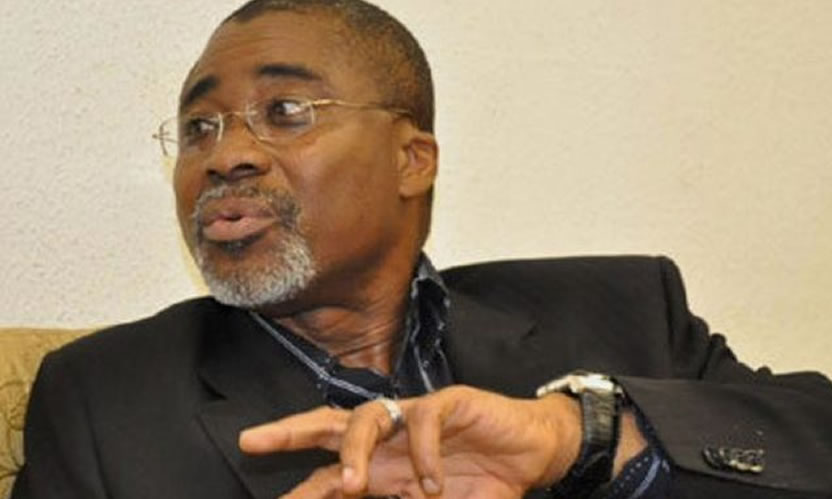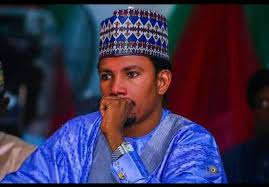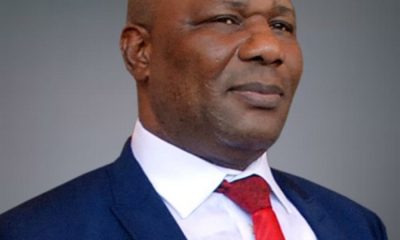COVER
Nigeria Existence Under Serious Threat – Says Lawan, Gbajabiamila
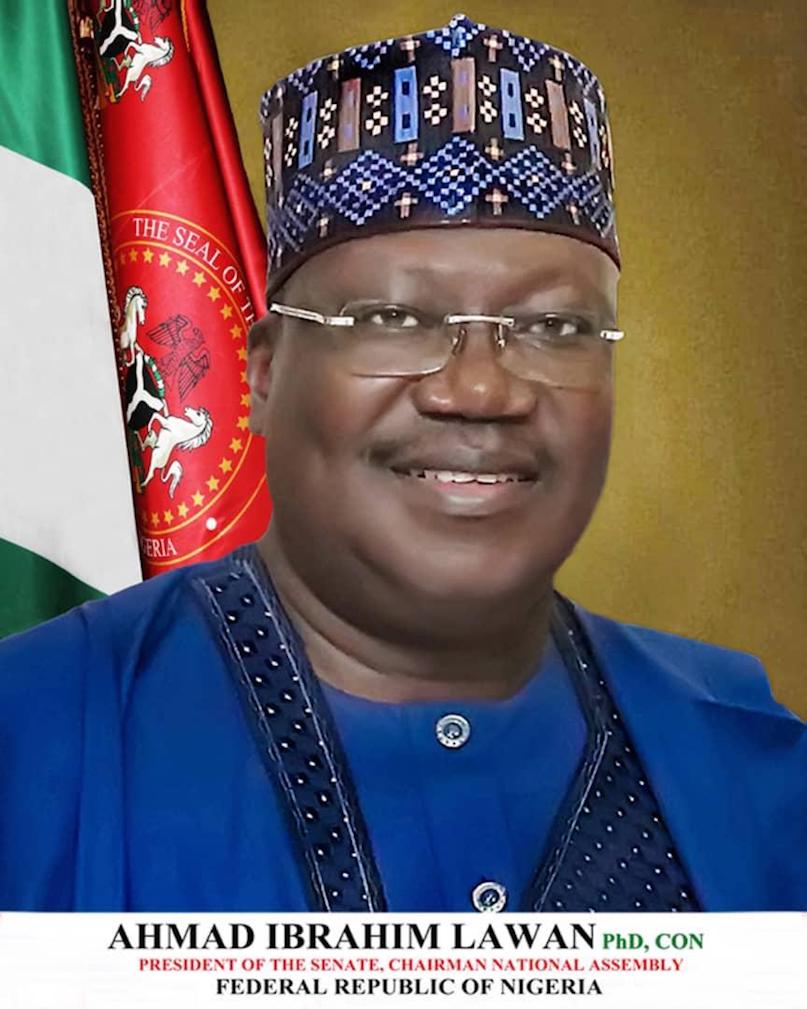
The Leadership of the National Assembly rose in unison yesterday with a conclusion that nation is at a cross road with serious threat of security challenges across the country.
Senate President, Senator Ahmed Ibrahim Lawan and Speaker of the House of Representatives, Femi Gbajabiamila, agreed that the very essence of the existence of the Nigerian nation was under serious threat.
Speaking at a three-day National Security Summit organised by the House of Representatives Special Ad-hoc Committee on National Security, the National Assembly presiding officers also agreed that it was high time Nigerians worked together in one accord irrespective of ethnic, political or religious affiliation to save the country from the impending catastrophe.
The summit which was earlier scheduled to begin on Monday was shifted to Wednesday in honour of the late Chief of Army Staff, Lt. General Ibrahim Attahiru and 10 others who died in a plane crash in Kaduna.
“I want to say here that Nigeria is at cross roads today. The very essence of the existence of this country is under serious threat.
“What started as insurgency in 2009 or so in the North Western part of Yobe has now snowballed into full scale insurgency in the entire north east.
“What was not known to us in the North West is today the home of banditry and kidnapping. The North Central, as we all know is not safe. It suffers clashes between the herders and our farmers.
“The recent introduction in the south east is another serious threat to the existence of this country where government institutions are targeted, our police and security agencies are being killed on a daily basis. Our institutions and buildings are burnt.
“I believe that these are threats, not only to those areas, but the entire nation. Our armed forces are doing their best. I must commend our armed forces and other security agencies for doing so much with the little we are able to give them.
“The National Assembly has always been on the side of giving the kind of support, either legislative, or the kind of financial support that our armed forces and indeed all other security agencies require, even though we have our limits”, Lawan said.
The Senate President said the essence of the summit was to look for ways of improving the performance of the nation’s armed forces and other security agencies, insisting that “this summit is essential because we are tested as a country, we are tested as a people.
“Criminals everywhere have found probably comfort in doing what they do. This is the time for the legislature and executive arm of government to come even closer in finding solutions.
“I want to take this opportunity to appeal and ask the executive arm of government to implement whatever would be the outcome of this summit.
“A criminal has only one name and that is criminal. No criminal should have comfort in his ethnic enclave. Whoever, or where ever that person is, once he is a criminal, he is simply a criminal and must be dealt with in the appropriate manner regardless of where he or she is coming from.
“It is also important that we provide resources, more resources for our security agencies to enable them better tackle the criminal activities across the country and our armed forces can do that. But the fact remains that we have not enabled them enough.
“Today in this country, there is no better investment than investing in the security of our people. We must ensure that we protect the lives and property of our people. This is the essence of government.
“So while the National Assembly should work hard as it always done to provide more resources, I also want to say we must review procurement processes by the security agencies.
“While we are not going to open up how they do these things to the public, but as parliamentarian who approve the funding, we must understand how these procurement processes are undertaken.
“If the processes require that we change the way we do that, because of inefficiencies, we should go ahead and do so, because it is not enough to just put in more resources, but how the resources are deployed within the economy, with prudence and efficiency.
“I want to once again appeal to us in the National Assembly. The security agencies, we know are doing their best, but I think it is high time we work with the executive arm of government to look at the architecture of our security system for better performance.
“When I mention architecture, I also want to mention that all levels of government are responsible for securing the lives and property of Nigerians. The federal, states and local governments and of course, it is a well-known fact that the local governments does not function.
“The local government system does not function and that takes away a lot from our efforts at providing security for lives and property of people.
“When I mention the local government system not functioning, our traditional rulers, who had played major roles in protecting us today have no function more or less.
“It is only when there are problems, we look for them. In the northern part of the country and I daresay all parts of Nigeria, our traditional rulers play key roles in ensuring security in their domains.
“Why can’t we look at the possibility of providing and official function for them, even if it is in advisory capacity in the constitution”, Lawan said.
Speaker, House of Representatives, Femi Gbajabiamila said Nigeria was a nation under attack, adding that Nigerians must work together in one accord irrespective of political or religious affiliation to save it from the impending catastrophe.
The Speaker said the victory of Nigerians over current security challenges depended on the ability to set aside all differences and mobilise in one accord.
The Speaker said every Nigerian need to work for peace and the desired benefits and expressed the hope that the country will come out of the current challenges, saying “it may well be that it is in the crucible of this battle for survival that we become a nation fully formed.
“Therefore, we must rise to the moment with passion and perspective and we are a nation under attack. Our victory in this present battle depends greatly on our ability to set aside our differences and mobilise in one accord against an impending catastrophe that threatens all of us regardless of language, religion, politics or status.
“We hope for peace and desire its benefits. Yet neither fervent hope nor heartfelt desire will suffice because the ends of peace require action. As in the words of the former American President, Bill Clinton, ‘peace must be waged with a warrior’s resolve; bravely, proudly, and relentlessly. Secure in the knowledge of the single greatest difference between war and peace, in peace everybody wins.’
“Let us in this defining moment, work together to pursue the things that make for peace. Let us dedicate ourselves to ending violence, and disorder in our land, and to improving the quality of life for all our nation’s people. Let us work together to uphold the honour and glory of Nigeria, and free our nation to be a place of peace and justice forevermore.”
According to the Speaker, “an enduring peace depends on our ability to build a society where individuals can aspire to and achieve their righteous ambitions on the strength of their effort and regardless of the status of their birth.
“Yet, achieving this kind of society depends on securing the lives of our people, protecting property and investment, and ensuring that people can freely traverse the length of our country without fear of danger and molestation.
“The legislative obligation to make laws for the good governance of the country exists alongside a duty to make sure that the policies we develop and the legislation we consider and pass, address the most pressing concerns of the Nigerian people.”
He said further that policies and legislation of government must also include the considered contributions of our citizens and be capable of meeting the highest ambitions of our nationhood, saying “we have convened this Special Summit on National Security to jointly, as citizens and public servants, find solutions to the problem of insecurity in our country.
“We are here because we know that our national ambitions will not be attained without lasting peace and security. We are here to have honest conversations about where we are, how we got here, and the hard choices we must make to guarantee a secure future for all our nation’s children.”
He said the summit will consider the contributions of a cross-section of the Nigerian people and develop therefrom, recommendations that take into proper account the social and constitutional, political, and economic factors that contribute to insecurity in our country, while identifying specific legislative actions and make practicable recommendations for executive action.
The Speaker said; “we do not seek and do not have it in our power to put an end to all conflict. Our responsibility in government is to ensure that the lives and property of all the people within Nigeria are safe from the predations of those who use violence for profit or in service of religious or ethnic objectives. And to make sure that whosoever raises arms against our country is served the full measure of justice.
COVER
Dangote Refinery Appoints David Bird New CEO

Dangote Group has named David Bird, former Chief Executive Officer (CEO) of Oman’s Duqm refinery, as the new chief executive of its petroleum and petrochemicals division in a bid to address operational challenges and drive its next growth phase.Bird officially assumed his role in July, taking charge of Dangote’s fuels and petrochemicals business, which launched the world’s largest single-train refinery last year.
Aliko Dangote, founder of the conglomerate, remains chairman of the refining arm and CEO of the overall group, which spans sectors including cement, fertilizer and sugar. Bird’s appointment is seen as a strategic move to leverage his experience at OQ8, where he oversaw the Duqm refinery’s expansion and crude diversification just before its 2023 test runs.In written comments to Platts, Bird stated his priority at Dangote would be advancing the group’s footprint beyond the Nigerian market and across the African continent.He also noted that his role involves ensuring maximum output and efficiency for the refinery while positioning the group as a global refining leader.The move came amid setbacks at the 650,000 barrels-per-day (b/d) Lagos refinery, which has faced multiple operational hiccups and “Design issues” that have hampered its ramp-up. The business has also cited an unfriendly regulatory environment as a barrier to operations.Since commissioning in January 2024, the refinery has made a significant impact on Nigeria’s energy market by slashing gasoline imports. However, Aliko Dangote has previously condemned “rent-seeking” trade practices and low-quality fuel imports for straining the plant’s progress.In an earlier interview, Bird promoted a strategy centered on trading performance, high plant utilization, and flexible feedstock options. His approach supports Dangote’s recent pivot to refining a broader mix of crude oils, as supplies of the Nigerian-grade crude initially intended for the plant have become limited.Despite its global ambitions, the refinery remains bound by a naira-based deal requiring it to supply a set volume of petroleum products to the domestic market via the Nigerian National Petroleum Company, which holds a 7.2% stake in the project.Looking ahead, Dangote Group is planning to expand the refinery’s capacity to 700,000 b/d, enhance port infrastructure, and develop overseas storage facilities in countries such as Namibia. In August, it is set to roll out its own distribution business with a fleet of 4,000 CNG-powered trucks.Executives have also confirmed plans to list the refining arm on both the London and Lagos stock exchanges.COVER
Nigeria, Benin Forge Unified Trade Path on New Framework

By David Torough, Abuja
In a decisive move to boost regional economic integration, Nigeria and the Republic of Benin have agreed on a comprehensive trade framework aimed at removing trade bottlenecks, strengthening bilateral ties and unlocking new economic opportunities.The agreement was reached during a high-level bilateral meeting held at the Ministry of Economy and Finance in Cotonou, Benin Republic.
The session brought together top government officials, customs authorities and trade policy experts from both countries to harmonise cross-border trade processes and develop a unified trade agenda. Nigeria’s Minister of Industry, Trade and Investment, Jumoke Oduwole, hailed the framework as a strategic advancement in West Africa’s drive for regional economic prosperity.“This agreement demonstrates the strong political will of both nations to foster inclusive and sustainable trade,” Oduwole stated, noting that it follows the Memorandum of Understanding signed by Presidents Bola Ahmed Tinubu and Patrice Talon at the recent West African Economic Summit.She said the agreement will be driven by four key thematic areas: trade facilitation, enforcement, data sharing, and infrastructure development.“Our shared goal is to dismantle trade barriers, enhance logistics, and leverage trade as a tool for job creation and inclusive growth,” she added. “Nigeria is also positioning itself to play a leading role in shaping equitable global trade systems.”The Comptroller-General of the Nigeria Customs Service (NCS), Adewale Adeniyi, reiterated the Service’s commitment to the agreement, highlighting the extensive technical engagements that led to the joint framework.“This outcome reflects over 48 hours of technical consultations between both customs administrations. It’s a blueprint aligned with the economic vision of both Presidents,” Adeniyi said.He disclosed that a formal Memorandum of Understanding, building on the framework, is scheduled for signing in the first quarter of 2026. He also outlined plans for corridor-based trade solutions, system connectivity, and enhanced facilitation measures targeted at small and medium-scale enterprises.“Our systems are now interconnected. We’re rolling out corridor-specific initiatives to simplify customs procedures, eliminate bureaucratic delays, and support local businesses,” he said.Adeniyi also commended his Beninese counterpart, Mrs. Adidjatou Hassan Zanouvi, for her collaborative efforts and Benin’s support for Nigeria’s leadership at the World Customs Organisation (WCO) Council meeting in Kinshasa, DRC.As part of the bilateral engagement, both delegations jointly toured the Port of Cotonou to evaluate operational procedures and identify opportunities for modernisation. They also visited the Seme-Krake Joint Border Post, reinforcing their commitment to integrated and secure border management.The newly established framework is expected to mark a turning point in Nigeria-Benin trade relations—one grounded in transparency, digital innovation, and shared economic growth.COVER
Again, Flood Submerges Farmlands, 18 Communities in Niger
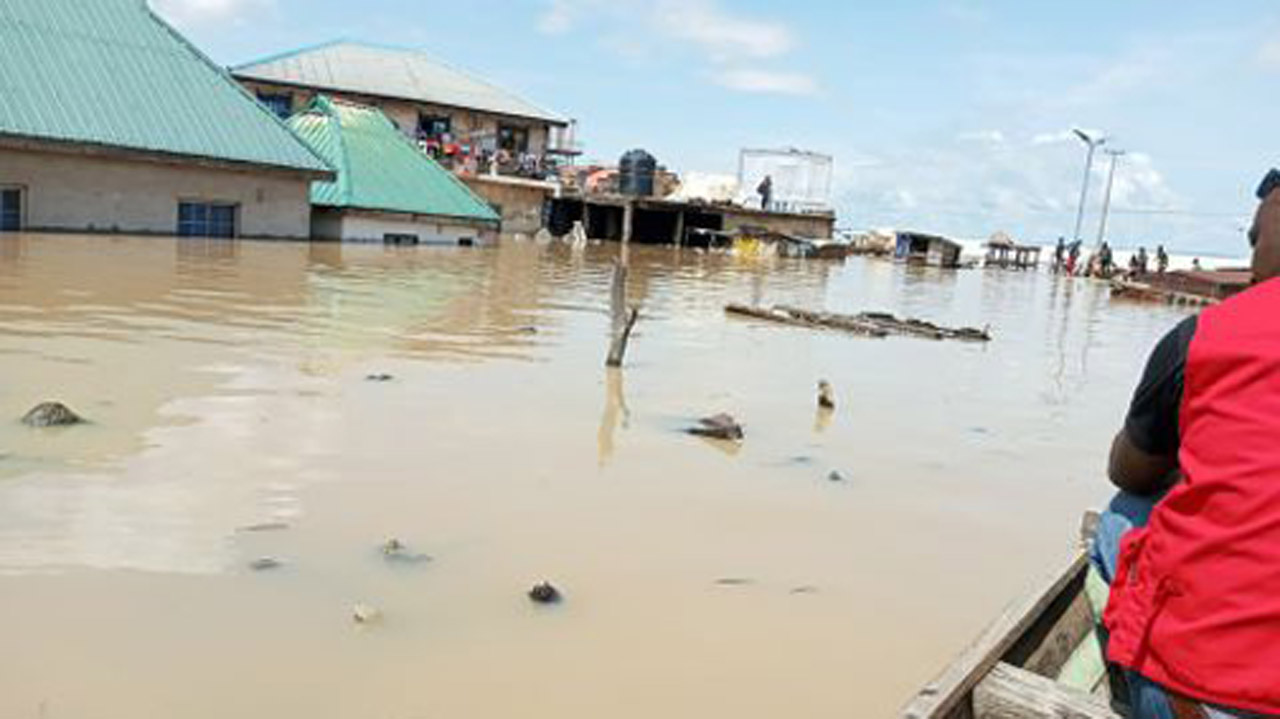
By Dan Amasingha, Minna
Flood has again submerged several farmlands in some communities in Niger State.This followed an early morning rainfall yesterday which ripped through farmĺands in Kafin Koro, Paikoro local government areas of the state.The flood also affected 18 communities in Lapai Local Government Area of the state where some farmlands were also affected, and many others at risk of being swept away.
Some of the affected communities include Dere, Eshi, Apataku, Tsakanabi, Kuchi Kakanda, Arah, Achiba, Rebba, Ebwa, Pele, Edda, Rigido, Gbami, Yawa, Baka, and Muye. The state government on Sunday re-echoed its earlier warning to riverine communities in the state to immediately relocate to higher grounds, saying the rains have intensified across the state.The Special Adviser to the Governor on Communication, Media and Strategy, Jonathan Vatsa, in a statement, appealed to communities in the affected areas to immediately relocate to a safer place to avoid further disaster in the state.Vatsa said that though the government understood the people’s attachment to their ancestral homes, there is the need for them to adhere to the government warning and relocate pending when the rains woulď be over.“We as a government will continue to be proactive by appealing to the people, especially those in the flood-prone areas, to immediately move upland to avoid the experience of the Mokwa disaster.“The government is aware of their attachments to their ancestral homes and lands, but with the various flood alerts, and what we are already experiencing, there is an urgent need for them to heed to the government’s warning.“The Mokwa experience is still very much with us, and we cannot afford a repeat of such an experience.“That is why the government is urging the people to move to a higher ground,” Vatsa said.The special adviser disclosed that the Nigerian Meteorological Agency had previously identified 15 out of the 25 local government areas in the state as very vulnerable to flooding every rainy season.The Federal Government had instructed residents of four local government areas of the state to move to safer locations as heavy rainfall was expected to trigger flooding between July 31 and August 5, 2025.This latest directive by the Federal Government follows a flood alert issued by the National Flood Early Warning Centre under the Federal Ministry of Environment, which revealed that communities in Rijau, Sarkin Pawa, Suleja, and Mashegu are at high risk of flooding during the forecast period.The Federal Government’s warning was contained in a statement titled “Flood Prediction”, signed by the Director of Erosion, Flood, and Coastal Zone Management Department, Usman Bokani, where he urged relevant authorities to take proactive measures to mitigate any disaster.While disclosing that the state government would soon embark on an enlightenment campaign to all the flood-prone communities, Vatsa called on traditional rulers, community and religious leaders to join the government in sensitising the people.NUJ, SERAP Tackle Bago over Closure of Media HouseThe Nigeria Union of Journalists (NUJ), Niger State Council, has condemned the recent directive by Governor Mohammed Umaru Bago to shut down Badeggi FM 90.1, a privately owned radio station based in Minna. The union described the move as an abuse of executive power and a threat to democratic principles.In a statement signed by the council’s Secretary, Adamu Usman Chiji, the NUJ urged Governor Bago to withdraw the closure order and follow due process. The union emphasized that only the National Broadcasting Commission (NBC) has the legal authority to issue or revoke broadcast licenses.“The media plays a critical role in holding public officers accountable,” the statement read. “Any concerns about professional misconduct should be directed to the appropriate regulatory bodies, not met with unilateral shutdown orders.”The NUJ reminded the governor that engaging the media through constructive dialogue, rather than issuing threats, is more in line with democratic norms. It also noted that a revalidation committee led by senior journalist Pastor Dan Amasingha has been established to ensure adherence to journalism ethics in the state.Meanwhile, the Socio-Economic Rights and Accountability Project (SERAP) has added its voice, issuing a 48-hour ultimatum to Governor Bago to reverse the closure and reinstate the station’s broadcasting licence.In a letter dated August 2, 2025, and signed by Deputy Director Kolawole Oluwadare, SERAP described the governor’s actions—including the revocation of the station’s license and threats to demolish its premises as arbitrary, unlawful, and a violation of both Nigerian constitutional rights and international human rights obligations.“Vague and unsubstantiated accusations of incitement cannot justify silencing critical media voices,” SERAP warned. “This move undermines press freedom and has a chilling effect on other media organisations, particularly ahead of the 2027 elections.”The group stressed that freedom of expression and media independence are vital to democracy, and warned of legal action if the state fails to comply with its demands.As of the time of filing this report, the Niger State Government has not responded to the NUJ and SERAP statements.
